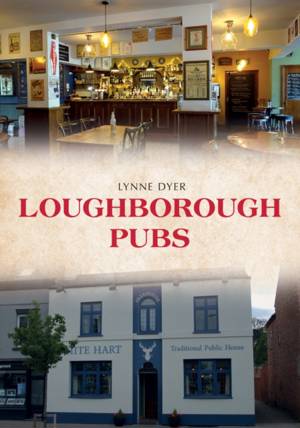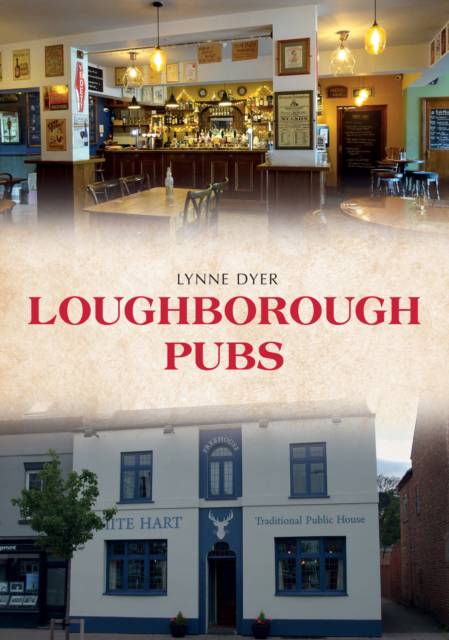
Je cadeautjes zeker op tijd in huis hebben voor de feestdagen? Kom langs in onze winkels en vind het perfecte geschenk!
- Afhalen na 1 uur in een winkel met voorraad
- Gratis thuislevering in België vanaf € 30
- Ruim aanbod met 7 miljoen producten
Je cadeautjes zeker op tijd in huis hebben voor de feestdagen? Kom langs in onze winkels en vind het perfecte geschenk!
- Afhalen na 1 uur in een winkel met voorraad
- Gratis thuislevering in België vanaf € 30
- Ruim aanbod met 7 miljoen producten
Zoeken
Omschrijving
As a market town conveniently located on major transport routes, Loughborough historically has offered visitors and inhabitants a large number of drinking establishments - pubs, taverns, coaching inns, post houses, alehouses - and the town was once home to the extensive Midland Brewery Company on Derby Road, close to the canal. As the town grew rapidly during industrialisation, the demand for more inns, beerhouses and off-licences grew too and, in 1889, 264 establishments were licensed to sell beer in Loughborough. By the twenty-first century this had shrunk to around a fifth of this. In this book author Lynne Dyer surveys drinking establishments in Loughborough that were in existence immediately before the Covid-19 pandemic and those that have reopened since that time, tracing their history and fortune. Included are historic buildings such as the Loughborough Arms in Baxter Gate, originally a coaching inn on the Earl of Moira's land known as Rose and Crown; the Royal Oak on Leicester Road, built to serve the turnpike road, which also hosted auctions and inquests; and the Paget Arms, a fine red-brick building on the corner of Paget Street and Oxford Street, built at the centre of a Victorian housing development for workers in Loughborough's expanding industries. Also featured are recently constructed pubs such as The Project in Market Street. In Loughborough Pubs, author Lynne Dyer takes the reader on a fascinating journey through the town's watering holes, many of which have retained features and traditions of previous ages. Brimming with quirky tales and facts, this carefully crafted guide initiates readers into the fascinating history of Loughborough's pubs.
Specificaties
Betrokkenen
- Auteur(s):
- Uitgeverij:
Inhoud
- Aantal bladzijden:
- 96
- Taal:
- Engels
- Reeks:
Eigenschappen
- Productcode (EAN):
- 9781398113435
- Verschijningsdatum:
- 15/11/2023
- Uitvoering:
- Paperback
- Formaat:
- Trade paperback (VS)
- Afmetingen:
- 165 mm x 234 mm
- Gewicht:
- 302 g

Alleen bij Standaard Boekhandel
+ 44 punten op je klantenkaart van Standaard Boekhandel
Beoordelingen
We publiceren alleen reviews die voldoen aan de voorwaarden voor reviews. Bekijk onze voorwaarden voor reviews.









